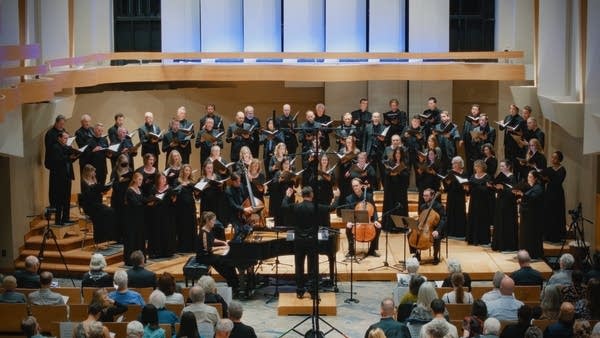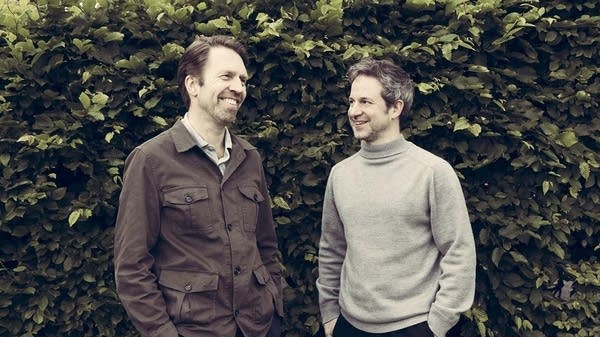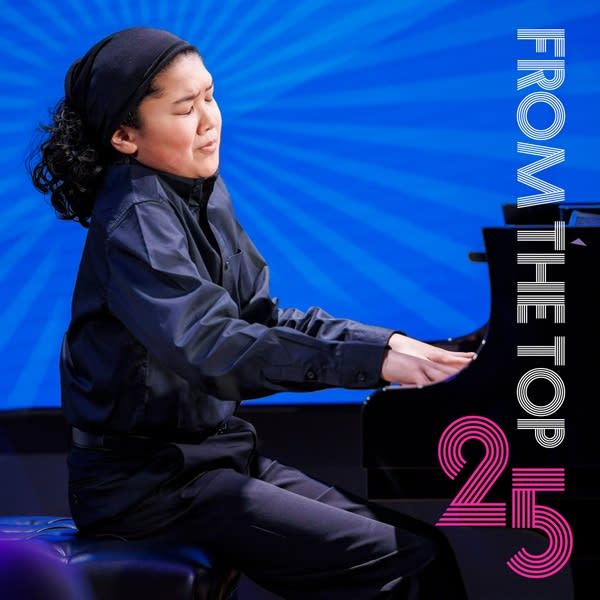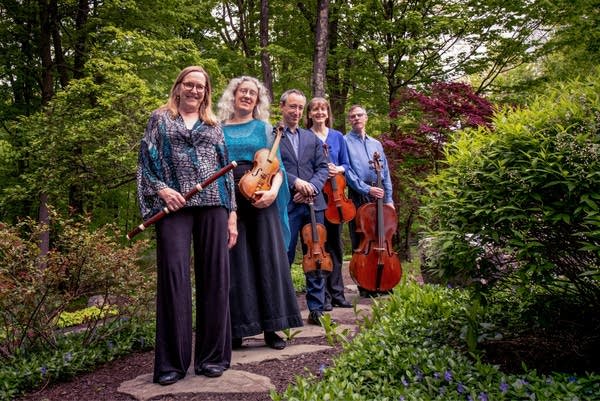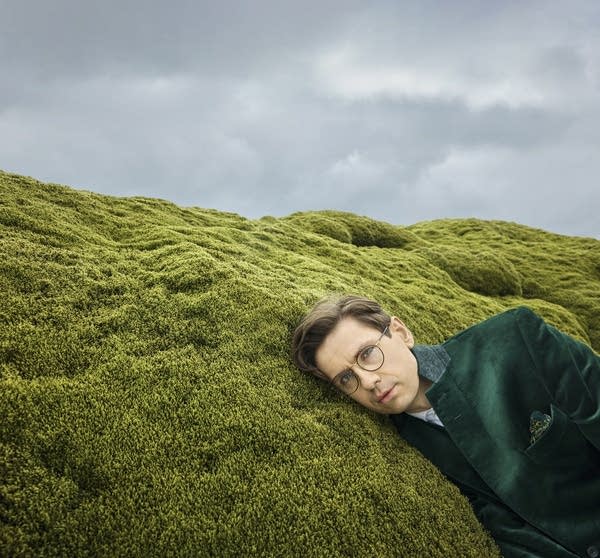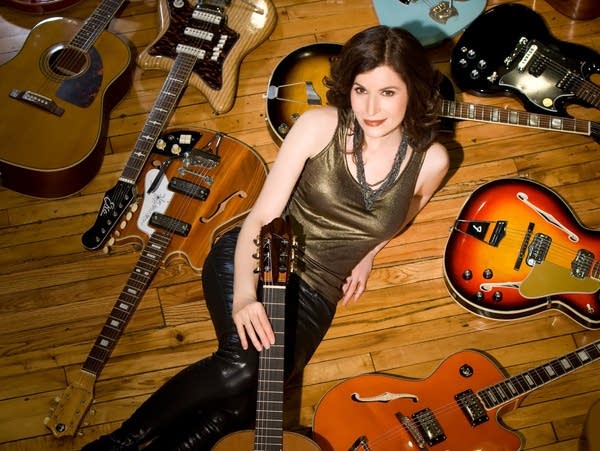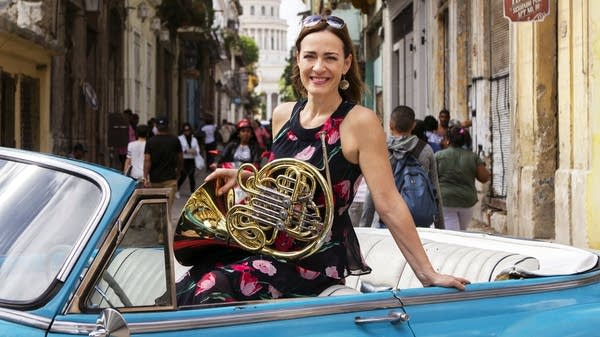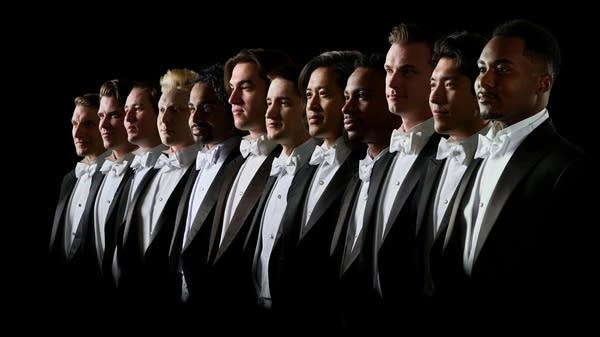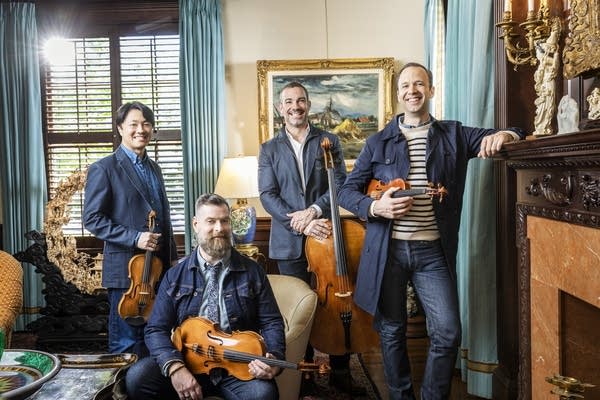Hélène Grimaud, Water (Deutsche Grammophon)
Something you probably think about every day is making sure you drink enough water. It's one way to maintain a healthy body. Something you may not think about every day is that your body is made up of about 60 percent water.

Water is our most precious resource. That's one reason pianist Hélène Grimaud teamed up with conceptual artist Douglas Gordon last year to perform in a flood of water in the middle of a 55,000-square-foot performance hall. The installation was called "Tears become, Streams become," and was created for the Wade Thompson Drill Hall at New York's Park Avenue Armory. "It was quite a mesmerizing experience," Hélène recalls. "When you hear the first notes of the Berio, I mean, I've played the program in the traditional pure form and I had my doubts about how difficult it was going to be to take the people along for that journey, and it worked beyond my expectations. But it was a very special atmosphere in that hall. And in fact, it wasn't even planned that this would become the sound of the recording. This recording was made initially for archival purposes. And once we listened to it, it was astonishingly good.
"Most of the audience was suspended in mid-air, on that balcony, and by the time the floor of the armory was flooded, you couldn't tell," Hélène continues. "You lost all sense of orientation. You could not tell what was the ceiling, what was the floor … the beautiful industrial ceiling was reflected, of course, on the surface of the water. And it was like being in a matrix."
I asked Hélène how water became her primary focus for this project, which evolved into her latest recording. "It was something which I always wished to explore," she says. "And it was just the beauty, the poetry of this music which led me to wanting to make a program out of it and a recording. That was the first motivation.
"The other sort of grew out of this as a sort of logical, sort of intuitive sort of feeling," Hélène says, "which is once you start to think about water as a source for inspiration and a metaphor, as it was for all these creators and artists who were inspired by it. You of course cannot help but start to look into simply water as a source of life, as the most essential resource that we all depend on."
As Hélène started to search for music inspired by water, she quickly realized the list is as deep as the ocean. So how did she narrow it down? "Yeah, that was quite difficult.," Hélène admits. "It took me a long time because there are so many beautiful pieces, and it was so hard to make a choice. And I wanted as many composers represented on the album as possible, and that meant only one excerpt, one piece per composer. And in the end I decided to go with what I considered, in my humble, subjective opinion, the more stylized, the more abstract pieces. They still needed to all merge into one world, one uninterrupted program. So it started with the first note of Wassklavier by Luciano Berio and ended with the last note of the Sunken Cathedral by Debussy without any interruption. But the repertoire is wonderfully poetic and evocative and atmospheric and deals with so many aspects of water and the different incarnations of water, except perhaps for the destructive power of that element which is not represented here. But all of the others are, certainly."
The destructive force of water may not be represented in these pieces; however, you will notice that Hélène's approach is often quite forceful. "Actually, I'm happy that you mention it, because it's true. I feel that there was that raw nature of the element that you feel. This is what makes water so fascinating. It is an irresistible force, it is ever changing. It is a driving force of all nature and it is full of paradox because it can be so sweet and so full of violence at the same time. And so when you feel … even in Les Jeux d'eaux for example, the Ravel piece, you have to always feel that power which is lurking. And it is far from just a decorative element. So I'm happy you hear that."
For many of these composers, water was their source of inspiration musically — and metaphorically, as in the piece, les Jeux d'eaux à la Villa d'Este by Franz Liszt. "I have a particularly soft spot for the Liszt," Hélène says. "You know the Liszt conceptually because the piece is wonderful but also because of the fact that it starts as this epicurean artifice, as water is a decorative element but then it morphs into water with all of its redemptive qualities and this possibility of rebirth and regeneration and ends in a totally mystical place in Liszt's fashion. So there are many different reasons why I felt so close to all these pieces."

Hélène's other partner for this project is composer Nitin Sawhney. His role is to provide the connecting tissue between these pieces. "And what I love about these transitions is that they're so respectful of the original material and so incredibly creative," Hélène says. "Each one is you know a totally different language if you listen to the sounds and the way they're being used, the sounds and the instrumentations. It's quite a beautiful mosaic, which makes the journey even richer and every transition is something which certainly you could consume by itself, just like any of the pieces on the program. But if you take time to listen to it in its entirety, I mean it's just … it's just a wonderful journey and so incredibly varied. It's really mesmerizing."
Water, a new recording featuring pianist Hélène Grimaud, who offers you the chance to reflect on one of our most precious resources.
Love the music?
Show your support by making a gift to YourClassical.
Each day, we’re here for you with thoughtful streams that set the tone for your day – not to mention the stories and programs that inspire you to new discovery and help you explore the music you love.
YourClassical is available for free, because we are listener-supported public media. Take a moment to make your gift today.
Your Donation
About New Classical Tracks®
Host Julie Amacher provides an in-depth exploration of a new classical music release each week.
Subscribe on Apple Podcasts, TuneIn, Radio Public, or RSS.


